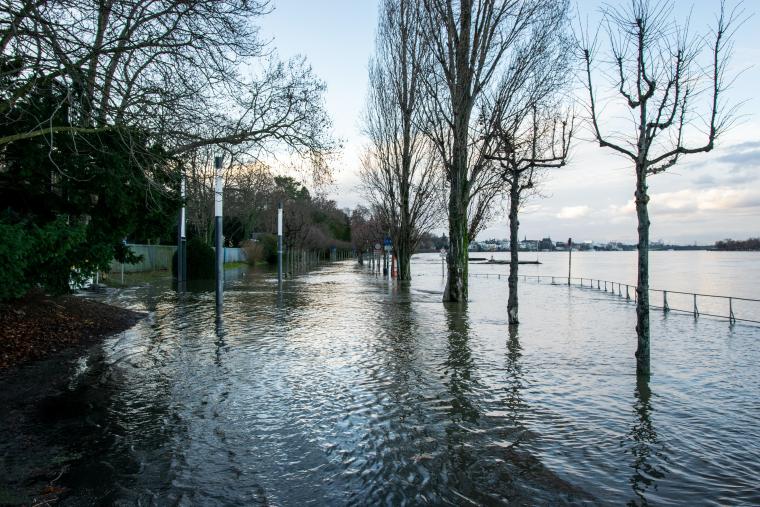- Managing your Practice
-
- Your Benefits
-

Introducing the ultimate Club MD experience
From work to play, and everything in between, we provide you with access to hundreds of deals from recognizable, best-in-class brands, elevating every facet of your life – from practice supports to entertainment, restaurants, electronics, travel, health and wellness, and more. Your Club MD membership ensures that these deals are exclusive to you, eliminating the need to search or negotiate.
Welcome to the ultimate Club MD experience. Your membership, your choices, your journey.
-
- Advocacy & Policy
-
- Collaboration
- News & Events
-

Stay Informed
Stay up to date with important information that impacts the profession and your practice. Doctors of BC provides a range of newsletters that target areas of interest to you.
Subscribe to the President's Letter
Subscribe to Newsletters
-
- About Us
-

Climate change – protecting our planet and ourselves
April 6, 2023
Together for Health
Later this month we will celebrate Earth Day – a day dedicated to raising awareness about the environmental issues that affect our planet, the biggest of which is climate change. Scientists around the world agree that climate change is escalating at an exponential rate, and if we don’t do something now to halt the destruction, the result will have catastrophic consequences.
Climate change is upon us
Over the last few years in BC alone, we’ve experienced extraordinary wildfire seasons, devastating floods and water shortages, a series of rarely seen ‘heat domes,’ vector borne diseases, and more. These climate-related crises are taking place with increasing frequency and adversely impact how we live. 
The impacts of climate change on our health
Climate change is a global phenomenon – and it impacts people disproportionately around the world. For British Columbians, extreme weather events like heat waves and floods can directly cause injury, illness, and even death, due to the extreme nature of the event. And climate change also has an indirect effect on our health because of changes to the environment:
- Worsening air pollution levels can negatively affect respiratory and cardiovascular conditions
- Changes in temperature and rainfall can affect insects and other species and lead to the spread of infectious diseases
- Increases in sea temperatures can result in more water-related illnesses
- Impacts on food safety can expose people to contaminated foods which can cause foodborne illnesses
Climate change can also negatively impact mental health and well-being. And while everyone is exposed to climate-related health threats, not everyone experiences the same harms. Generally, these are disproportionately felt by the most vulnerable and disadvantaged groups, including women, children, low-income communities, older populations, and those with underlying health conditions.
How you can help
Canada is among the top per-capita energy consumers in the world! Everyone – big and small – can be a part of the solution to mitigate climate change. Here are some changes you can incorporate in your everyday life, even just one can make a difference:
- Use energy wisely. Our homes consume a lot of energy to operate appliances, lights, and for heating. Making simple changes like swapping to LED bulbs, washing your clothes in cold water, turning off the lights and unplugging electronics when you’re not using them, and getting a heat pump are just a few ways to significantly reduce your energy consumption.
- Make your commute green. Transportation accounts for almost 1/4 of climate-polluting emissions in this country. Fewer cars on the road means less carbon emissions so finding a transportation alternative, even just a couple of days a week, like riding your bike, walking, carpooling, or taking public transportation can go along way to help the environment.
- Make your diet climate friendly. Eat less meat. Commercially raising animals for human consumption has a large impact on global warming, so buy organic when you can, don’t waste food, and perhaps adopt Meatless Mondays. And where possible, grow what vegetables you can.
- Reduce, Reuse, and Recycle. It takes millions of barrels of oil to manufacture plastic bags and water bottles, and millions of these items still end up in landfills and cause major issues for marine life. Drinking from long-lasting glass or aluminum water bottles and using cloth bags reduces the need for plastic manufacturing. Reusing your plastics and then recycling them also helps protect the environment.
- Go paperless. Switching to paper statements and online invoices, or using an app to read your favourite magazine or newspaper, can save millions of trees every year from being chopped down.
We are on a dangerous path to a climate change disaster, but there is still time to turn things around. Governments around the world are at different stages of addressing our environmental concerns, but closer to home there are things that we, as concerned citizens, can do to make a meaningful difference and save our planet – for us and for all future generations.
You can read about Doctors of BC's commitments and recommendations regarding the significant impact climate change can have on human health in our Climate change and human health news article.




